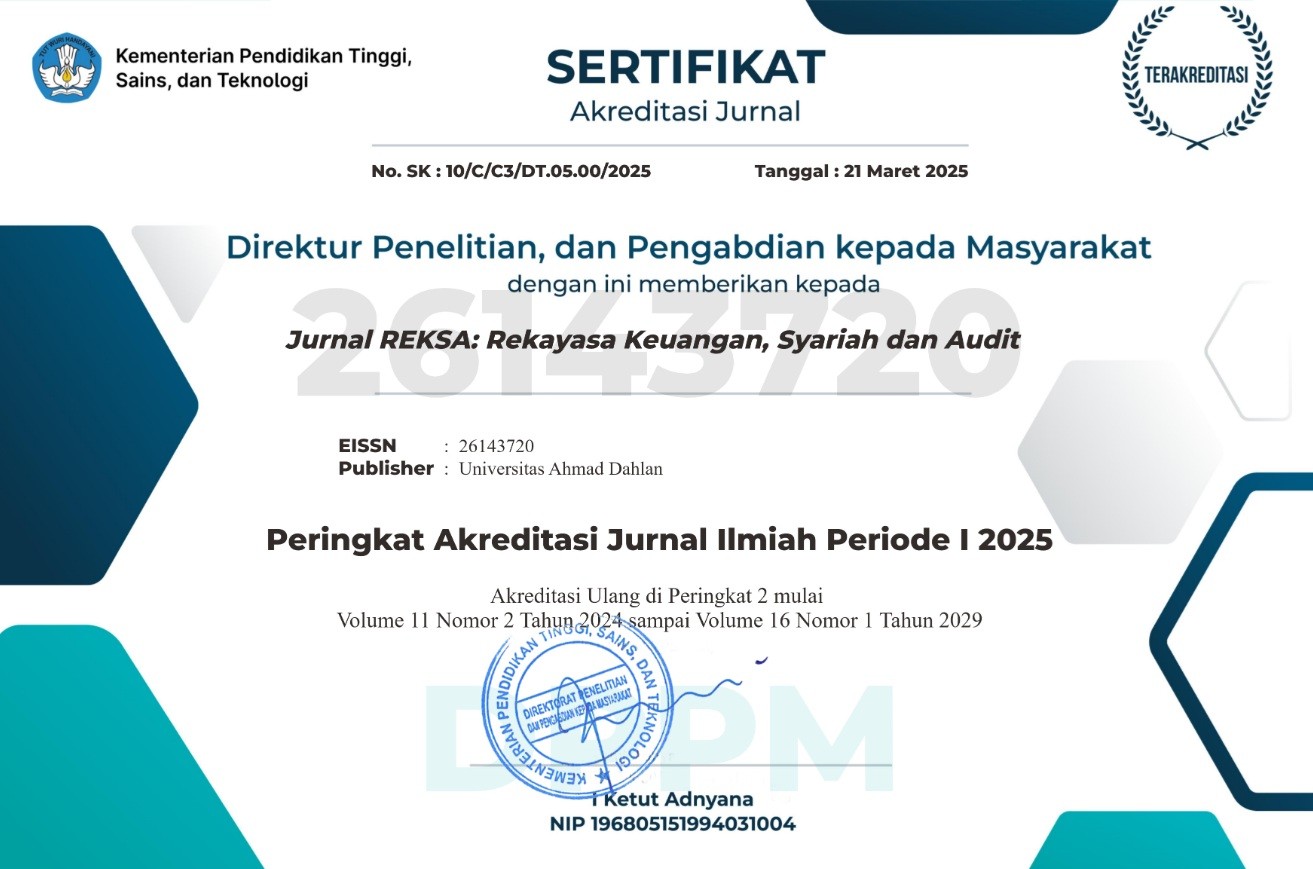PENGARUH FAKTOR KEPRIBADIAN WIRAUSAHA TERHADAP INTENSI BERWIRAUSAHA PADA MAHASISWA AKUNTANSI Studi pada mahasiswa Akuntansi Universitas Ahmad Dahlan Yogyakarta
DOI:
https://doi.org/10.12928/j.reksa.v2i2.22Keywords:
entrepreneurship education, risk taking propensity, locus of control, entrepreneurship intentionsAbstract
Many studies suggest that personality factors determining the entrepreneurship intentions. On the other hand, entrepreneurship education is one way to increase student entrepreneurship intentions. Another personality factor that can improve student entrepreneurship intention is risk-taking propensity and locus of control. The purpose of this study is to find empirical evidence about the influence of personality factors as seen from education entrepreneurship, risktaking propensity, and locus of control on entrepreneurial intentions of students of the Faculty of Economics of Accounting Studies Program University of Ahmad Dahlan Yogyakarta. The data used are primary data where the sample was taken based on purposive sampling as many as 100 students of Accounting Ahmad Dahlan University Yogyakarta. Regression analysis was used to test research hypotheses with the help of SPSS 16. Research results showed that entrepreneurship education and locus of control affect the entrepreneurial intention, while the trend did not affect the risk-taking entrepreneurial intentions. Based simultaneous test (F test) variables entrepreneurship education, risk taking propensity, locus of control and influence on entrepreneurial intentions.Downloads
Published
2018-06-09
How to Cite
Barata, B., & Fachrudin, K. A. (2018). PENGARUH FAKTOR KEPRIBADIAN WIRAUSAHA TERHADAP INTENSI BERWIRAUSAHA PADA MAHASISWA AKUNTANSI Studi pada mahasiswa Akuntansi Universitas Ahmad Dahlan Yogyakarta. Jurnal REKSA: Rekayasa Keuangan, Syariah Dan Audit, 2(2), 158–175. https://doi.org/10.12928/j.reksa.v2i2.22
Issue
Section
Articles
License
Authors who publish with JURNAL REKSA agree to the following terms:
- Authors retain copyright and grant the JURNAL REKSA right of first publication with the work simultaneously licensed under a Creative Commons Attribution License (CC BY-SA 4.0) that allows others to share (copy and redistribute the material in any medium or format) and adapt (remix, transform, and build upon the material) the work for any purpose, even commercially with an acknowledgment of the work's authorship and initial publication in JURNAL REKSA.
- Authors are able to enter into separate, additional contractual arrangements for the non-exclusive distribution of the journal's published version of the work (e.g., post it to an institutional repository or publish it in a book), with an acknowledgment of its initial publication in JURNAL REKSA.
- Authors are permitted and encouraged to post their work online (e.g., in institutional repositories or on their website) prior to and during the submission process, as it can lead to productive exchanges, as well as earlier and greater citation of published work (See The Effect of Open Access).




